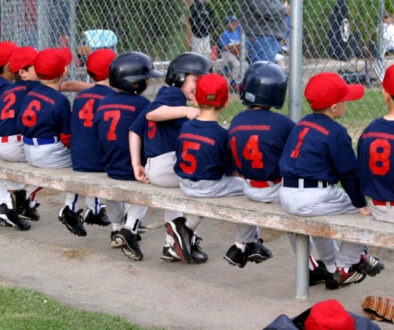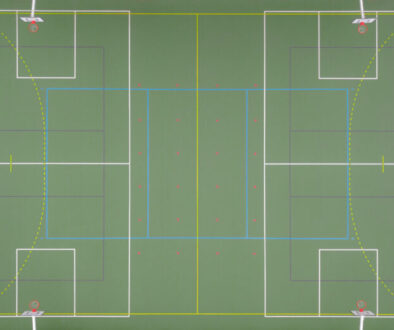Manage a Sports Facility: Insights for Ownership & Growth
Tips Before You Manage a Sports Facility, Complex, or Academy
Are you considering opening/ managing a sports facility? If so, you’re about to embark on one of the most rewarding journeys of your life. You’ll be able to share your passion and vision with others and while they find their own path towards personal/athletic growth. There are many reasons to manage a sports facility, no matter your sport of choice. Like many, your goal might be to expand your financial portfolio and earn passive income with a robust facility, complex, or academy. Or you could be fueling your passion by opening a small gym in your local community. No matter your scope or overall goals, this guide will provide you with insights and steps for successfully opening and growing any type of sports facility.
Create and Organize a Profitable Sports Facility Business Plan
First and foremost, draft a business plan that outlines your goals and how you intend to achieve them, including how you expect your company to grow over time. It’s essential for anyone who wants to start a sports facility or run one successfully, but it can be difficult to figure out where to begin when you don’t have much experience in business management or entrepreneurship.
Here are some tips on creating a plan:
- Start by listing the objectives of your company–what do you hope to accomplish? What services will be offered? These should be short statements that clearly state what type of business this is (e.g., “We provide tennis lessons”) and why someone would want their service (e.g., “Our goal is helping people improve their tennis skills”). Don’t forget about yourself! Make sure there’s room toward the end for personal objectives as well as those related directly with running an establishment such as improving employee relations or increasing revenue streams.”
- Sometimes it is also helpful to take note of what you don’t know about the business. From payroll to marketing, it takes a wide array of tools to successfully manage a sports facility. If you can effectively limit your blind spots and move forward with your eyes open, it will save you from headaches later on.
Determine a Quality Location
A strategic location is key to the success of any business, and a sports facility is no exception. It’s important that you find a location that will be easy for customers to find and access. You want them to feel comfortable coming back again and again, so you need to make sure they can get there easily. The best way to do this is by prospecting locations where people live and work and- if possible- within walking distance from their homes or offices.
You’ll also want your facility located near main roadways so that it’s visible from afar (and therefore more likely noticed). Your customers should have access via public transportation as well as parking options nearby; ideally these would be free or low cost for frequent visitors. The proximity of hotels, restaurants, and other amenities will also help attract new clientele who may not have considered using your services before but might now consider them due simply because they’re available at such close range after attending an event at another venue nearby such as an arena or stadium where these services are offered freely by default without having been specifically requested beforehand.”
Recruit and Hire Trainers & Coaches
If you wish to effectively manage a sports complex, it will also require effective management of people. So much of your success and ability to grow will hinge on hiring quality employees:
In order to recruit and hire the best trainers and coaches, you need to consider their skills and qualifications. For example, a trainer or coach should be trained in the sport that they are coaching. This means that if you want someone who can train clients in yoga, then it would be best if they had a certification from an accredited institution such as Yoga Alliance or Sports Massage Therapists Association (SMTA). It might be more difficult to find trainers with set certifications in more publicly consumed sports like soccer, basketball, or baseball – so keep in mind what is most important to you (re: enthusiasm, experience, timeliness, etc) and recruit staff accordingly.
Other important factors include:
- Passion for the sport – Your trainers should have a genuine interest in what they do; otherwise they won’t be able to communicate effectively with clients or motivate them during workouts. A passion for fitness can also lead them into becoming excellent teachers who will inspire others around them while making exercise fun!
- Communication skills – Communication is key when working with clients at any facility; therefore hiring someone who knows how to talk well will benefit both parties involved during sessions together.
Utilize Marketing to Bring in New Athletes and Clients
Marketing is the lifeblood of any business, and sports facilities are no exception. In fact, marketing is even more important when you manage a sports facility when considering the competition.
Unless you are a truly established sports facility, it is likely better for you to utilize social media (Facebook, Instagram) and local SEO (Google Local Business Listing) to keep your company at front of mind and demonstrate that your offerings, hours, and availability are up to date.
Email marketing is another great tool because it allows for meaningful use of existing contacts from previous interactions while also adding new ones through newsletters and promotions.
As with any successful marketing approach, it is important that your efforts are planned, trackable, and consistent. For instance, there are many affordable and useful email marketing solutions that track open rates, clicks, forwards, and more. Such insights will be important as you work to grow your business.
Finally, it is important to keep your website updated with quality content, valuable promotions, and useful updates for clients and employees alike. Further, review-based web presence (think Yelp, Google Reviews, etc.) will help draw in new clients in need of a sports facility they can trust.
Proper Equipment and Facility Quality Standards.
Don’t forget to ensure enough equipment and a safe, clean facility for your clients!
Don’t over-extend yourself, but make sure you have enough equipment and proper facility quality. This includes having the right equipment for each sport, as well as adequate space to play it in safely and comfortably. Equipment should be well-maintained, especially if you have athletes using it on a regular basis (which is likely). Do regular equipment maintenance checks and remove broken or damaged equipment immediately so that no one gets hurt while using your facilities!
While it is easy to overlook, equipment, field, and facility quality becomes more important to athletes as their skills and talents progress… so if you wish to keep clients returning for years to come, always work to maintain the highest standard for quality and safety.
Offer Value-Adds and Up-Sells (Think of Additional Revenue Streams)
You can offer value-adds and up-sells to your customers. For example, if a customer buys a membership, you could offer them free access to the pool or gym for one month. This will encourage them to use those facilities more often and increase your revenue streams. You should also think outside the box when it comes to other revenue streams (like sponsorships).
Key Points and Ideas:
- Add-ons are a great way to increase revenue, especially if you have the right mix of offerings at your facility. You can offer everything from massages, personal training sessions and nutritional counseling to equipment rentals and membership packages. Include a variety of add-ons so that you appeal to different clientele–for example: parents looking for child care during their workout; athletes seeking sports performance training; individuals wanting physical therapy after an injury; or families who want fun activities for kids’ birthday parties.
- Train staff on how best to sell add-ons (and why). Consider having designated staff who specialize in selling specific services like personal training sessions, batting cage reservations, or child care services.
Consider a Software to Organize, Process Payments, Track Inventory, and Grow Your Business.
Consider a useful sports management software (like eSoft Planner) to organize, process payments, track inventory, and grow your business.
eSoft Planner is a facility management software that helps owners, coaches, and trainers organize, process payments, track inventory, and grow their businesses. It is used by hundreds of sports facilities across the country, including many of our own clients who have seen success with it. The system is easy to use and saves time while providing valuable information, reporting, marketing, and management of facility operations.
Useful in nearly every sport, eSoft offers the lowest prices in the industry with some of the most powerful capabilities, including reporting, automated marketing and reminders, maximized court reservation algorithms, bar-code inventory & membership tracking, and more.
You can learn more about Sports Facility Software here.
Your Sports Complex Success Starts with You.
If you’re considering opening a sports facility, we hope our insights have been helpful! If you still have questions about the process, don’t hesitate to reach out. With over 20+ years of experience in the Sports Facility Management / Software Space, “SFE” is ready to help you launch, manage, or grow your forthcoming or existing sports enterprise.
The sports facility ownership/management industry is growing and (if approached correctly) can prove to be incredibly lucrative. (See: story of our founder, Mike Meszaros and DNA Sports) We’re always available to provide insight to owners, trainers, and coaches, and would be more than happy to assist you with any questions you might have.
If you’d like to learn about a possible consultation with SFE, click here and schedule a quick appointment.
Helpful Links & Resources:
- eSoft Planner – About:
About Us
- Indoor Facility Industry & Marketing (IBIS World):
- Best Practices in Sports Complex & Facilities:
Best Practices in Sports Scheduling Software: How to Grow Your Business Effectively



